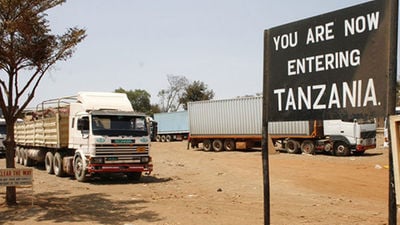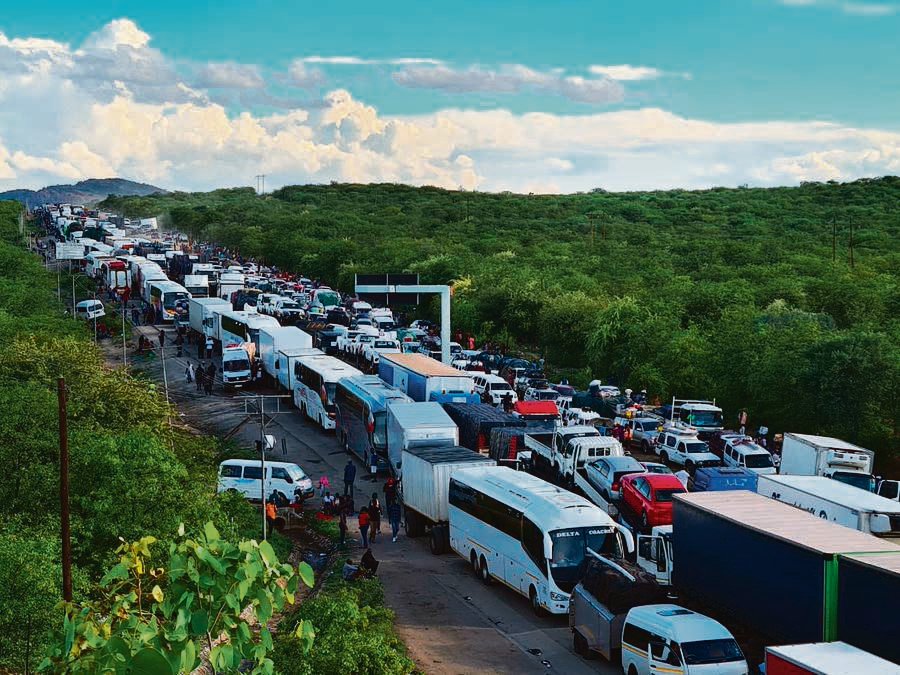
Engineering News
• Agenda 2063 – which is the African agenda for integration and the blueprint and master plan for transforming the continent into a global powerhouse of the future – would facilitate the AfCFTA, as well as other integration projects
• There are large programmes for regional and transcontinental infrastructure, including transport
• We want a competitive continent, a harmonising of regulations and policies
African nations need to establish and/or reinforce their infrastructure to meet the looming implementation of the Africa Continental Free Trade Agreement (AfCFTA), a panel of speakers participating in the UK-Africa Investment Conference, on January 20, has said.African nations need to establish and/or reinforce their infrastructure to meet the looming implementation of the Africa Continental Free Trade Agreement (AfCFTA), a panel of speakers participating in the UK-Africa Investment Conference, on January 20, has said.
For the African free trade area to function effectively, the goal would be [to have] effective infrastructure, transport, energy and digitalisation,” said Africa Union infrastructure, energy and information and communications technology commissioner Amani Abou-Zeid.
She added that Agenda 2063 – which is the African agenda for integration and the blueprint and master plan for transforming the continent into a global powerhouse of the future – would facilitate the AfCFTA, as well as other integration projects.
“I am happy to say that, as we speak, we have large programmes for regional and transcontinental infrastructure, including transport. Same thing for energy. Last June, we launched the African single electricity market.
“Along with that, we have the African single air transport market, and as I speak, 39 countries have joined that market and we are in the process of creating that new market,” said Abou-Zeid.
All of these endeavours have the purpose and goal of integrating Africa and supporting the successful implementation of the AfCFTA, as well as the wellbeing of African citizens.
A COMPETITIVE CONTINENT
“We want a competitive continent, a harmonising of regulations and policies to make it easier for investors, whether African or not, to create this economy of scale, give a boost to employment and to create opportunities for our young people, women and children. A good part of that goes into bridging the urban-rural gap in Africa,” she said.

Alcohol producer Diageo Africa supply chain director Colin O’Brien said that, through the AfCFTA, the opportunity to be able to export competitively and sustainably from African markets into other markets in the region is “really attractive”.
However, he said infrastructure, and particularly transport infrastructure, as well as the ability to move products freely from one market to another, will be very attractive for Diageo and will build on the efficiencies of operations it has in some of its big markets.
“The other big opportunity we see is around electricity and renewable energy in particular and creating grids where markets [with] big renewable energy potential can export electricity across the region,” said O’Brien.
He added that having the potential to avail that renewable energy in markets that are a little more challenged in terms of having electricity, is hugely important.
Unilever Africa finance VP Mikateko Tshetshe said AfCFTA was important for Unilever in Africa.
However, she cautioned that the European version of AfCFTA took over 30 years to establish, and that AfCFTA will take just as long. “But I know that [the] African [Union] is currently working on getting this done a lot sooner.”
IT NEEDS SERIOUS INVESTMENT
Nonetheless, she said AfCFTA required serious investment, and a mindset of using what the continent already had in place as it developed the required infrastructure, the required integrated systems and the required processes for AfCFTA to “actually operate optimally”.
“The investment we need from the community on this particular platform is investing in road, rail and air transportation. Investing in systems that will enable Africa to integrate and obviously also providing any best practices and knowledge to help ensure we are creating an effective market that is well integrated for technology,” said Tshetshe.
More news
- PART 2: CONCRETE IN THE DESIGN OF A UNIQUE LUXURY HOME IN GEORGE, SOUTH AFRICA
- PART 1: CONCRETE IN THE DESIGN OF A UNIQUE LUXURY HOME IN GEORGE, SOUTH AFRICA
- MVULE GARDENS, AFRICA’S LARGEST 3D-PRINTED AFFORDABLE HOUSING PROJECT
- PART 3: HARNESSING THE POTENTIAL OF HIGH SULPHUR FLY ASH IN CONCRETE PRODUCTION
- PART 2: HARNESSING THE POTENTIAL OF HIGH SULPHUR FLY ASH IN CONCRETE PRODUCTION

